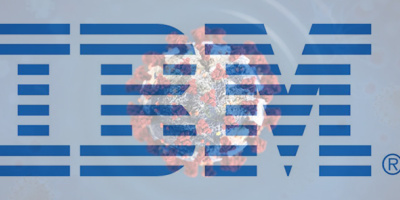Language can be a source of tension in my home and native land of Canada. The French/English divide has been a major inspiration behind the calls from some quarters for Québec separation. With its inherent linguistic challenges, you would think that the last thing Canada needs is a new language. So why did a company in Edmonton, Alberta, hire a University of Alberta Ph.D. candidate to develop a totally new language for use in a video game? I didn't aim that high in my academic career, but doesn't a Ph.D. candidate have anything better to do with his time? Does Canada really need this? Does the world really need this?
(For the benefit of those who are unfamiliar with Canadian geography, Edmonton is a Canadian city and the capital of Alberta. As of the time of writing, Alberta and Québec are two of Canada's ten provinces, but please don't remind members of le Parti Québécois or le Bloc Québécois of that fact. It tends to make them rather depressed.)
According to an April 19, 2005, article in the New York Times, Edmonton-based BioWare, the makers of Jade Empire, produced about 10% of the game's 15,000 lines of pre-recorded speech in an Asian-sounding language of its own devising, which it named Tho Fan. The company then went on to have four more fake languages created for another of its games, Dragon Age.
I have enough trouble writing and speaking English well; now they want me to learn a whole new language just to play a video game. I don't think so. It's hard to comprehend why anyone other than a linguist or student of ancient Latin texts would bother learning Latin when it's a dead language, but since so many modern languages were derived from it and it has historical significance, at least you can understand that. But why should I learn an entirely new, totally fabricated language that nobody speaks on a regular basis? What's the point of that? The game displays subtitles whenever the characters are speaking Tho Fan, so you don't actually have to learn the language to play the game, but that isn't stopping some game fanatics. I checked the forum that the developer created for the game and at least one loyal player is looking for sources of Tho Fan language instruction.
The New York Times article pointed out that editions of Hamlet and the ancient Babylonian epic Gilgamesh have been published in a language, Klingon, that was fabricated for another work of fiction, Star Trek. To the best of my knowledge, nothing like that has happened with Tho Fan or any other language created for a video game, but if the game proves popular enough, you just know that some geeks are eventually going to get around to doing something like that. The fact that it has already been done in Klingon just goes to prove beyond a shadow of a doubt that some people have way too much time on their hands.
I suppose I shouldn't be so negative. Instead, I should be thankful that the need to read subtitles may help to improve literacy skills, thereby allowing more people to read this column--if they would only take their eyes off the game screen long enough to do so.
By way of full disclosure, I should say that I don't play video games. One of the most difficult trials that I have ever faced and won was kicking my intense addiction to the simple Solitaire game that comes with Microsoft Windows. It was beginning to take over my life and was a mammoth monkey on my back. I'm very proud of being able to beat that addiction, but I know how easy it would be to slip off the wagon. I become petrified just thinking of how hooked I might get if I were to try a more engaging game. Therefore, my stand on these addictive distractions is "Just say no."
Personally, I think that it's all part of an evil conspiracy. I can't prove it, but I'm convinced that video games are a terrorist plot designed to distract us and prevent us from doing anything productive, while frying our brains in the process. Freedom is at stake.
What I really want to know, more than why a game-maker would feel the need to create a new language or why there is no public outcry over such addictive pursuits, is why the powers-that-be allow most video games to be widely distributed with incredibly violent content when everyone knows that, regardless of the adult rating assigned to them, or perhaps because of the adult rating assigned to them, kids are going to be playing these games in large numbers.
I don't get it. Janet Jackson very briefly flashed one breast, just one mind you, at a Super Bowl half-time show, and it was front-page news for weeks. Government regulators invested considerable resources trying to figure out how to prevent a recurrence of such a catastrophe. And a large segment of the population went ballistic over how that disgusting case of sheer exhibitionism was going to thoroughly corrupt our youth and utterly destroy the moral fiber of one or more whole generations.
Those same generations can totally engross themselves in very graphic and realistic-looking video games that, in order to progress to the next, more violent level, require players to steal lots of stuff and/or brutally kill as many people and/or creatures as possible. But hey, that's just good clean fun. Some of these games bring new and terrifying meaning to the term "killer application."
Just good clean fun is it? Well, I don't envy the judge who is going to have to make that decision. There is now a lawsuit outstanding against the makers of the game Grand Theft Auto because an 18-year-old who played it for hundreds of hours went out and imitated some of the action in the game, killing three real-life people, including two police officers, in the process. By the way, this person bought the game while he was still a minor. Oh yeah, that game is something that we want to put into the hands of impressionable kids. According to CBS News, when captured, the perpetrator said, "Life is like a video game. Everybody's got to die sometime."
Now there's a great philosophy for you: Life is like a video game. According to this sick individual, apparently the highest aspiration of the human spirit is to become the most vicious crime lord possible by killing a lot of people and stealing a lot of cars, among other things. Life is like a video game. Too bad that, when you grow tired or disgusted with this life, you can't just go out to the store and buy a new one for $39.99 or $49.99 for the deluxe version.
Am I missing something, or do the people who fretted endlessly and vociferously about Janet Jackson's "wardrobe malfunction" but are not terribly concerned about the graphic, explicit, and extreme violence of video games (not to mention television and movies) have their moral priorities just a tad out of whack?
The violence of video games brings up another point. I keep hearing about how creative the game designers are. Oh yeah? Why is it that the best they can come up with is something based on excessive death and destruction? That seems rather unimaginative, considering how much of it there already is in the real world.
If game creators really wanted to prove their creativity, they would invent an engaging game, one that millions of people would want to buy and play, that has as its primary objective the achievement of complete freedom, democracy, and justice for all characters in the game, while using the least amount of violence as possible to achieve that objective.
In my game, you would lose 500 points for every person you killed and 100 points for every person maimed. You'd gain 100 points for every minor conflict and 500 points for every major conflict that you resolved without bloodshed. Finding a way to replace an evil dictator's regime with a stable, free, and fair democracy without spilling any blood would get you one million points. You'd get extra points if, during your bloodless revolution, you also improved the food, service, décor, and prices at local restaurants. There'd be more points if you, through talk alone, convinced local taxi drivers to obey traffic laws and drive safely. (I'd personally like to invite anyone who reaches that level in the game to come and visit Toronto. We need you.)
There would also be bonus points for being smart enough to throw away any simulated electronic gadgets that, while intended to improve human communications, actually served to weaken relationships between characters in the game. But that's just a personal pet peeve. And there'd be even more points for having an avatar-to-avatar personal conversation without the use of any of the electronic tools remaining in your virtual satchel.
To make it popular with young and not-so-young (oh, I don't know, say about 52, just to pull an age out of the air) male audiences, the game will probably have to have a few scantily clad, busty, young virtual women among its cast of characters. That will undoubtedly greatly offend the "moral majority" and feminist groups, but that's a small price to pay for a peaceful world, even if it is only a virtual one.
That sounds like a great game to me. I don't hold any legal rights to the idea, so game developers are welcome to it for free. Of course, if you should feel duty-bound to pay me a seven-figure honorarium, I wouldn't be so proud as to turn it down.
Then again, maybe a game based on peace, love, and cooperation is too "liberal" for this day and age. Who knows? Somebody might become hopelessly addicted to it and begin to have difficulty distinguishing between the game and reality. Then they might go out and foolishly try to solve some of the real world's problems peaceably. Heaven forbid. We couldn't have that, now could we?
Joel Klebanoff is a consultant, a writer, and president of Klebanoff Associates, Inc., a Toronto, Canada-based marketing communications firm. Joel has 25 years experience working in IT, first as a programmer/analyst and then as a marketer. He holds a Bachelor of Science in computer science and an MBA, both from the University of Toronto. Contact Joel at
























 More than ever, there is a demand for IT to deliver innovation. Your IBM i has been an essential part of your business operations for years. However, your organization may struggle to maintain the current system and implement new projects. The thousands of customers we've worked with and surveyed state that expectations regarding the digital footprint and vision of the company are not aligned with the current IT environment.
More than ever, there is a demand for IT to deliver innovation. Your IBM i has been an essential part of your business operations for years. However, your organization may struggle to maintain the current system and implement new projects. The thousands of customers we've worked with and surveyed state that expectations regarding the digital footprint and vision of the company are not aligned with the current IT environment. TRY the one package that solves all your document design and printing challenges on all your platforms. Produce bar code labels, electronic forms, ad hoc reports, and RFID tags – without programming! MarkMagic is the only document design and print solution that combines report writing, WYSIWYG label and forms design, and conditional printing in one integrated product. Make sure your data survives when catastrophe hits. Request your trial now! Request Now.
TRY the one package that solves all your document design and printing challenges on all your platforms. Produce bar code labels, electronic forms, ad hoc reports, and RFID tags – without programming! MarkMagic is the only document design and print solution that combines report writing, WYSIWYG label and forms design, and conditional printing in one integrated product. Make sure your data survives when catastrophe hits. Request your trial now! Request Now. Forms of ransomware has been around for over 30 years, and with more and more organizations suffering attacks each year, it continues to endure. What has made ransomware such a durable threat and what is the best way to combat it? In order to prevent ransomware, organizations must first understand how it works.
Forms of ransomware has been around for over 30 years, and with more and more organizations suffering attacks each year, it continues to endure. What has made ransomware such a durable threat and what is the best way to combat it? In order to prevent ransomware, organizations must first understand how it works. Disaster protection is vital to every business. Yet, it often consists of patched together procedures that are prone to error. From automatic backups to data encryption to media management, Robot automates the routine (yet often complex) tasks of iSeries backup and recovery, saving you time and money and making the process safer and more reliable. Automate your backups with the Robot Backup and Recovery Solution. Key features include:
Disaster protection is vital to every business. Yet, it often consists of patched together procedures that are prone to error. From automatic backups to data encryption to media management, Robot automates the routine (yet often complex) tasks of iSeries backup and recovery, saving you time and money and making the process safer and more reliable. Automate your backups with the Robot Backup and Recovery Solution. Key features include: Business users want new applications now. Market and regulatory pressures require faster application updates and delivery into production. Your IBM i developers may be approaching retirement, and you see no sure way to fill their positions with experienced developers. In addition, you may be caught between maintaining your existing applications and the uncertainty of moving to something new.
Business users want new applications now. Market and regulatory pressures require faster application updates and delivery into production. Your IBM i developers may be approaching retirement, and you see no sure way to fill their positions with experienced developers. In addition, you may be caught between maintaining your existing applications and the uncertainty of moving to something new. IT managers hoping to find new IBM i talent are discovering that the pool of experienced RPG programmers and operators or administrators with intimate knowledge of the operating system and the applications that run on it is small. This begs the question: How will you manage the platform that supports such a big part of your business? This guide offers strategies and software suggestions to help you plan IT staffing and resources and smooth the transition after your AS/400 talent retires. Read on to learn:
IT managers hoping to find new IBM i talent are discovering that the pool of experienced RPG programmers and operators or administrators with intimate knowledge of the operating system and the applications that run on it is small. This begs the question: How will you manage the platform that supports such a big part of your business? This guide offers strategies and software suggestions to help you plan IT staffing and resources and smooth the transition after your AS/400 talent retires. Read on to learn:
LATEST COMMENTS
MC Press Online